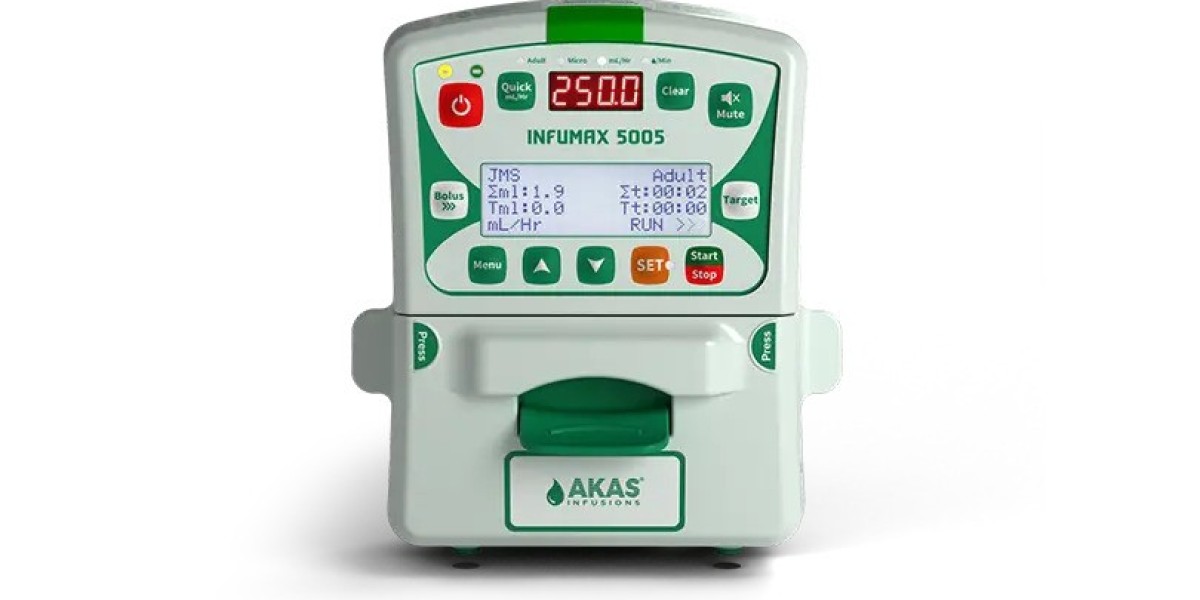Introduction
Hospitals thrive when care protocols are consistent, reliable, and safe across every department. From intensive care to oncology, maintaining standardised practices ensures that patients receive the right treatment at the right time. Yet, achieving this consistency can be challenging when diverse teams and clinical environments are involved.
One of the most effective solutions lies in technology that bridges these differences. The volumetric pump has become a trusted tool for hospitals striving to unify protocols. By offering precise control, reliable dosing, and integration across multiple departments, it creates a foundation for standardised care that benefits patients, caregivers, and administrators alike.
The Need for Standardisation in Hospitals
Patient safety depends on eliminating variability in drug administration.
Standardised protocols reduce errors and create smoother workflows for caregivers.
Hospitals with consistent practices can better meet accreditation standards and improve outcomes.
Without unified systems, departments may rely on different approaches, leading to potential inconsistencies. A common tool, such as the volumetric pump, provides the bridge that aligns practices, ensuring all units operate with the same precision and reliability.
How Volumetric Pumps Enable Consistency
The strength of a volumetric pump lies in its ability to deliver controlled and accurate drug infusions. This single feature becomes the backbone of standardisation across diverse clinical departments. Whether it is a high-acuity ICU or a busy general ward, hospitals can rely on volumetric pumps to align delivery methods and reduce the risk of human error.
Key benefits include:
Precision in Drug Delivery: Consistent dosage accuracy prevents underdosing or overdosing.
Ease of Training: Staff across departments use the same system, reducing learning gaps.
Protocol Alignment: Hospitals can unify drug delivery methods across various care units.
Reduced Risk: By minimising variability, hospitals lower the chance of medication errors.
Data Integration: Pumps provide records that support protocol monitoring and compliance.
Standardisation Across Multiple Departments
Each hospital department comes with its own challenges, but the volumetric pump adapts to provide a consistent foundation.
Intensive Care Units (ICU): Precise drug titration supports critically ill patients, reducing variability in emergency protocols.
Oncology Units: Chemotherapy requires highly accurate dosing, where pumps provide standardised and safe delivery.
Paediatrics and Neonatology: Sensitive patient groups benefit from pumps that ensure controlled administration with minimal risk.
General Wards: With simpler but still vital infusions, pumps help streamline processes for nursing staff.
Emergency Departments: Rapid response is enhanced when protocols are consistent and technology familiar.
By creating uniformity in these diverse areas, hospitals establish a culture of reliability that reassures patients and supports caregivers.
Operational Benefits of Volumetric Pumps
Beyond clinical outcomes, volumetric pumps also deliver significant operational advantages that strengthen the entire healthcare ecosystem.
Improved Training Efficiency: With one standard system, hospitals reduce training time and create confident, skilled staff.
Supply Chain Simplification: Hospitals save costs by standardising equipment procurement across departments.
Regulatory Compliance: Pumps support adherence to local and global medical safety guidelines.
Cross-Department Collaboration: Shared protocols improve communication and team coordination.
Better Resource Allocation: Data insights from pumps help administrators optimise hospital workflows.
These benefits extend far beyond immediate patient care, building long-term stability and resilience in hospital systems.
Supporting Patient Trust and Safety
Consistency builds trust. When patients and families know that hospitals use advanced systems like volumetric pumps across departments, confidence in care increases. Standardisation reassures them that no matter where treatment occurs within the hospital, safety and precision remain constant.
Caregivers, too, benefit from this reassurance. Working with reliable equipment reduces stress and creates a sense of security in daily routines, particularly in high-pressure environments.
Conclusion
Standardised care is no longer an option but a necessity in modern healthcare. Hospitals that embrace tools like the volumetric pump create a foundation of precision, reliability, and consistency across departments. This approach not only enhances patient safety but also improves efficiency, staff confidence, and institutional credibility.
Akasinfusion continues to support hospitals in this mission by manufacturing world-class drug delivery devices such as volumetric pumps. With technology designed to unify practices and uphold the highest standards of care, hospitals can move closer to delivering safe, consistent, and compassionate treatment for every patient.








